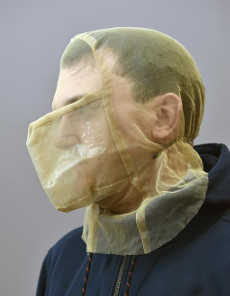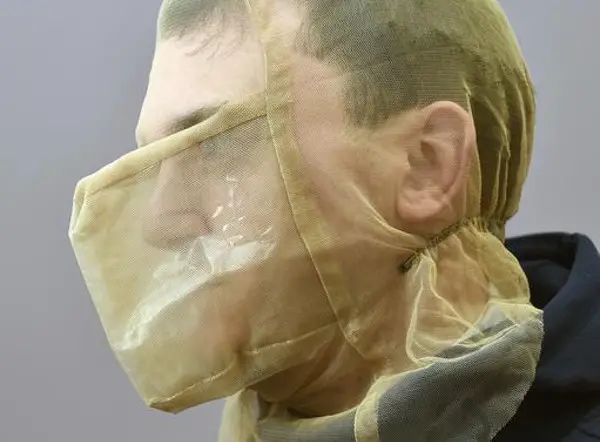The police share this latest news. Ed
Police officers in Hampshire will be issued with spit guards to protect themselves, other emergency services and the public from the risk of being spat at.
Hampshire officers already use spit guards in custody  and this will now be extended to all frontline staff. Since April 2016, 126 assaults involving spitting have been recorded by our officers and the spitting of blood is increasing.
and this will now be extended to all frontline staff. Since April 2016, 126 assaults involving spitting have been recorded by our officers and the spitting of blood is increasing.
Following consultation, the decision was made jointly with Thames Valley Police and will be implemented once full training has been completed and the spit guards have been procured.
David Hardcastle, Assistant Chief Constable Operations, Hampshire and Thames Valley, said:
“Spit guards are being introduced to help protect officers, other emergency services personnel and members of the public from this unacceptable and potentially dangerous behaviour.
“Our officers put themselves at risk every day to protect the public and we want to ensure that they have the appropriate equipment to deal with the challenges they face. Everyone should be able to go to work without the possibility of being assaulted, including being spat at.
“We have listened to concerns raised by officers and our Police Federation, as well as recent recommendations from the National Police Chiefs’ Council, and have held discussions with our independent advisory group which comprises members of the public. They were supportive and we have taken the decision that spit guards will be rolled out to all front line officers across the Force.”
Hampshire’s Police and Crime Commissioner, Michael Lane, commented:
“Assaulting police officers is unacceptable and needs to be understood by the public to be so. A particularly vile method is spitting and this also carries with it potential health risks.
“I rely on my Chief Constable’s advice on the correct procedures to keep officers safe and to ensure the public are protected. One part of this array of methods includes making available to front line officers the option of using a spit guard. I have been briefed on the operational use of these guards and training that officers have been given, and will continue to receive annually, in their use.
“I have scrutinised this decision carefully, including taking the opportunity to wear an updated version of the guard myself. I will continue to hold the Chief Constable to account that spit guards remain the most appropriate and effective method for protecting officers and responding to this type of assault.”
John Apter, Chairman of the Hampshire Police Federation, said:
“Being spat at is a vile and dangerous act which is a growing issue for our officers. Often it is not just saliva but blood that officers need protection from. These guards must be available to every officer across the country, they must have the equipment to protect themselves.
“I have been campaigning for some time for spit guards to be issued to all of our frontline officers. I’m pleased that the Chief Constable has made this decision. It will add to the work Hampshire has been doing to support officers and staff who have been the victim of assaults.
“I know there are some who have concerns that the police will be using these guards but I would remind them that spit guards will only be used on those who spit at officers and pose a risk. If they don’t want a spit guard to be used on them then my advice would be don’t spit.
“This is the right decision. It will help to protect our officers, they deserve nothing less.”
What are spit guards?
Spit guards are made from a light, see-through, breathable material that goes over a suspect’s head and contains a section that prevents the person from spitting.
Why is this such an issue?
Increasingly assaults involve the spitting of blood, not just saliva. Emergency services personnel are at risk of blood-borne virus contamination from these bodily fluids entering their mouth, nose, eyes or an open wound.
This poses a risk of transmitting a range of infectious diseases, including Hepatitis C. The use of spit guards will reduce the potential for transmitting these infectious diseases. They are already being used by a number of forces.
When will they be used?
Spit guards will only be used on suspects who have already spat at officers, or who are about to spit, and only when a suspect has already been handcuffed.
How will they be used safely?
All frontline officers will now receive guidance on how to safely and effectively use spit guards as part of their training. This training will include the recording of incidents where spit guards have been used. This information will be regularly assessed.
When using a spit guard, officers will be required to explain the reason for its use and will monitor the suspect at all times. Officers will need to maintain the dignity of the suspect throughout the process.





